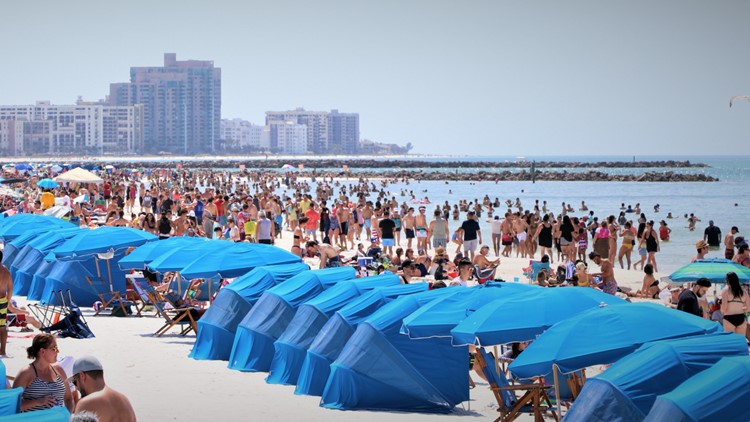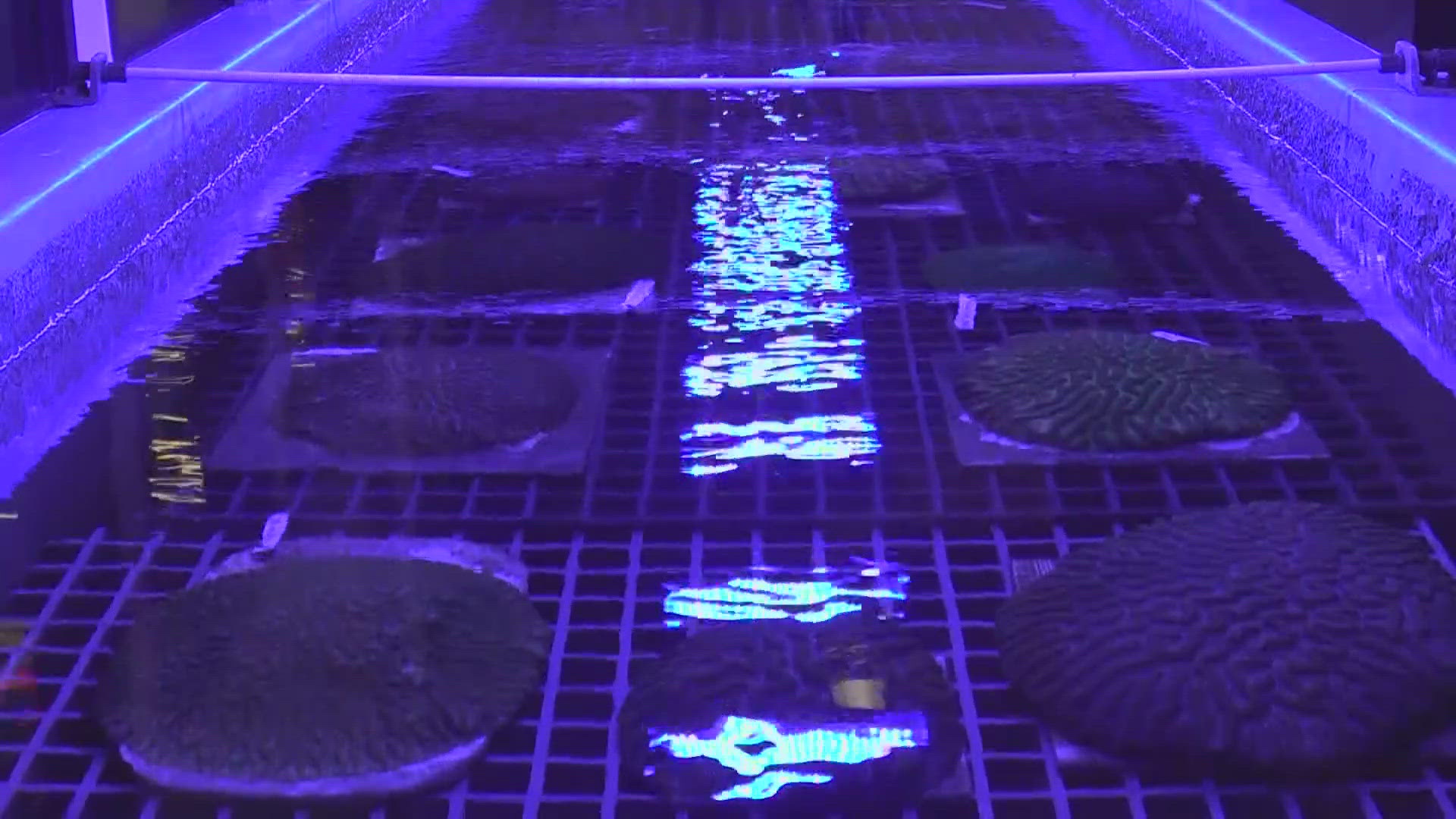ST. PETERSBURG, Fla. — If you're hoping to find some cooling relief at the beach, you probably won't find it in the water.
Water temperatures in Tampa Bay and the Gulf of Mexico are near, at or even above 90 degrees right now, according to data from the National Oceanic and Atmospheric Administration.
At Picnic Island, for example, as of 7 a.m. Tuesday, the water temperature was 91.9 degrees, according to a nearby NOAA bouy. Over at Clearwater Beach, the water temperature was reportedly 87.8 degrees as of Tuesday morning. These temperatures are above average.
These high water temperatures come about a week after the world unofficially experienced the hottest day ever in recorded human history.
Why does this matter? Not only do high water temperatures make beach days less enjoyable because you can't cool off, but these temperatures threaten to harm the delicate and essential coral reefs off Florida's shores.
And it's worse the further south you go in the Sunshine State.
Water temperatures near Johnson Key came close to 97 degrees Monday evening, according to a NOAA buoy. Another buoy had a reading close to 95 near Vaca Key a day earlier. These are about 5 degrees warmer than normal this time of year, meteorologists said.
Global sea surface temperatures have been record high since April and the North Atlantic has been off-the-charts hot since mid-March, meteorologists report as climate change is linked to more extreme and deadly events.
“That's incredible,” said National Weather Service meteorologist Andrew Orrison. "The water is so warm you really can't cool off."
While the 95- and 96-degree readings were in shallow waters, "the water temperatures are 90 to 93 degrees Fahrenheit around much of Florida, which is extremely warm," said University of Miami hurricane researcher Brian McNoldy. He said his 95-degree pool doesn't cool him — it just leaves him wet.
Water temperatures across the Gulf of Mexico and Southwest Atlantic are 4 to 5 degrees warmer than normal, Orrison said. Because the water is so warm, the air in Florida gets more humid and “that's making things tougher or more oppressive for people who are going to be out and about,” he said.
Scientists worry about the coral in that warmed-up water.
Coral bleaching and die-offs are becoming more frequent with climate change, especially during an El Nino, with Australia’s Great Barrier Reef losing half its coral during the last supersized El Nino in 2016, scientist Liv Williamson of the University of Miami's Coral Reef Futures Lab said.
Scientists say a new El Nino is part of the reason for the current heat, along with ever-increasing warming from the burning of coal, oil and natural gas.
The Associated Press contributed to this report.



